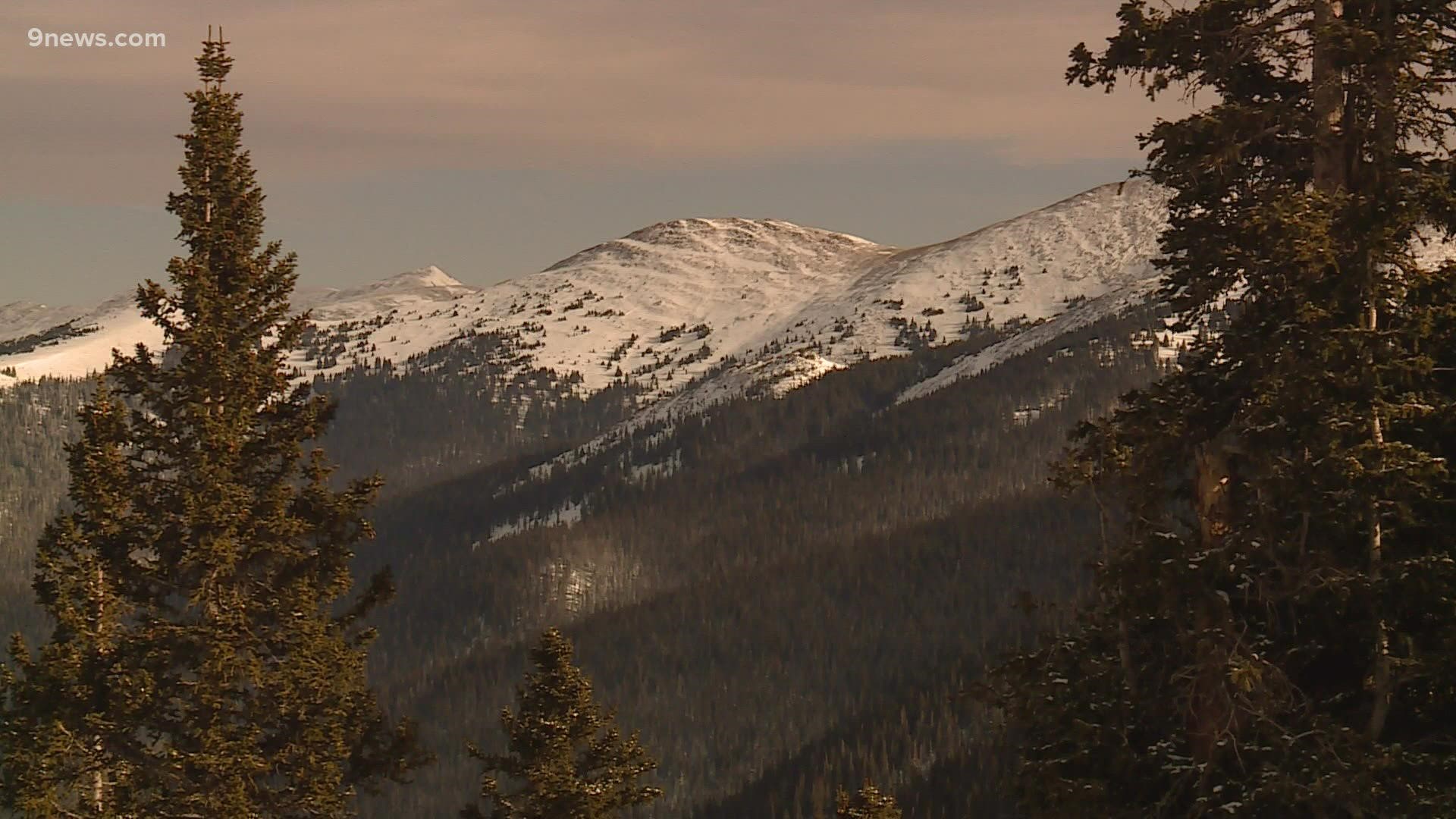DENVER — The snow has finally made its way to Denver. At Denver International Airport, .03 inches were measured.
The mountains are expecting a few feet of snow from the storm that was expected to finish Friday night. That mountain snowfall could contribute to snowpack. Snowpack is the snow that sits on the ground in the mountains until warmer weather melts it away.
Almost all of Denver's water comes from mountain snowmelt, said University of Colorado Boulder's Director of Western Slope Water Assessment, Ben Livneh.
Livneh says observers don’t measure the snow by depth or inches. Instead, it’s measured by precipitation.
"So precipitation that falls between, say, October and April. We really don't see any of that in the river or in our reservoirs until later in the summer,” Livneh said.
Friday’s snowfall wasn’t significant, but it’s a start for the Mile High City.
"We probably only got about an inch of water, which is ultimately what comes into the reservoirs and the stuff that we end up using,” Livneh said.
Snow observers say this year’s drought is creating a number of challenges for the future.
“We really do need a big snow year and we probably need a few big snow years to really make a dent into things,” Livneh said.
This is why the winter months are critical for Denver in order to provide a consistent water supply for residents.
"All of our snow observing stations are still lagging below where we typically are this time of year. So even though we are below average, I think this snow event really moves us in the right direction,” Livneh said.
SUGGESTED VIDEOS: Science & Weather

